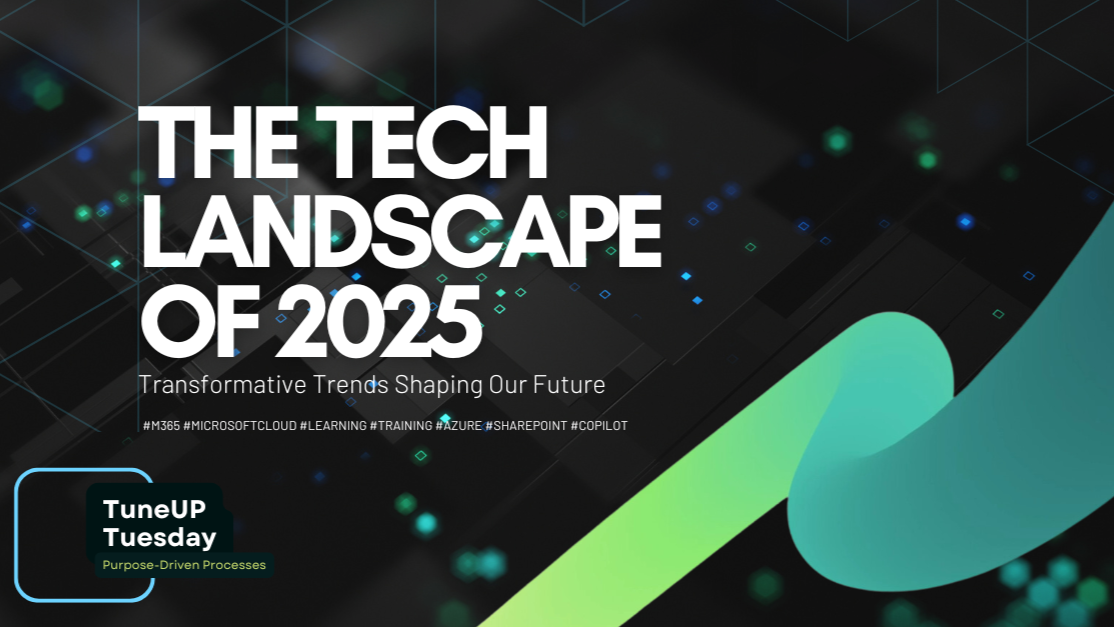Navigating the Transformative Tech Landscape of 2025.
The year 2025 is ushering in a pivotal phase in the global tech era, where disruption and innovation converge to redefine how we live, work, and interact. At the forefront are technologies that are more than incremental—they are transformative.
Agentic AI and Autonomous Intelligence
Agentic AI represents a leap beyond assistive tools into autonomous systems capable of decision-making and self-directed goal attainment. Gartner forecasts that by 2028, up to 15?percent of routine work decisions will be made by such systems, up sharply from nearly zero today (People Matters ANZ, Technology Magazine). These agents are already being trialed in sectors from finance—where portfolios adjust in real-time based on market sentiment—to healthcare, where treatment plans adapt dynamically to patient data(Technology Magazine, People Matters ANZ).
Quantum Computing: From Theory to Applications
Once confined to labs, quantum computers are now looming as real-world tools. IBM, Google, and innovative startups are building 500?qubit systems capable of solving chemical and cryptographic challenges thousands of times faster than classical machines(Medium). Industries such as pharmaceuticals, logistics, and finance will feel these changes vividly with quantum-enabled optimization and simulation tools(Medium).
Connectivity Revolution: 5G, 6G, and Satellite Networks
While 5G deployment continues globally, the race toward 6G is accelerating—delivering terahertz speeds and near-zero latency for holographic communication and autonomous systems(TechGenyz). Satellite broadband networks like Starlink and Project Kuiper are expanding internet access in underserved regions, combining with edge AI to democratize global connectivity(TechGenyz).
Extended Reality (XR) and Spatial Computing
Extended reality—blending VR, AR, and MR—is redefining immersiveness across education, remote collaboration, and entertainment. Apple’s Vision Pro and VR headsets from Meta and HTC are driving accessibility and broader adoption(News Ghana). By enabling users to interact with hi?fidelity spatial environments, XR is reshaping everything from training simulations to virtual offices(Emeritus Online Courses, News Ghana).
Sustainability, Circular Tech & Green Computing
Sustainability is now central to hardware and infrastructure innovation. Companies like Framework, Fairphone, Apple, and Lenovo are pushing modular, repairable, and recyclable tech—and governments are poised to incentivize them via subsidies and right?to?repair legislation(TechGenyz). Meanwhile, data centers increasingly rely on renewable energy or even nuclear power to meet the massive energy demands of AI and cloud systems(The Wall Street Journal).
Cybersecurity in the AI?Quantum Era
Security threats are growing ever more sophisticated, with AI?driven phishing and the looming risk of quantum?enabled decryption attacks. In response, enterprises are adopting post?quantum cryptography and AI?augmented threat detection tools, while regulatory frameworks like the EU’s Digital Resilience Act enforce zero?trust architectures and mandatory firmware updates for connected devices(TechGenyz).
Emerging Domains: Biotech, Synthetic Media & Smart Cities
Biotechnology is being fused with AI for breakthroughs in personalized medicine and climate?resilient agriculture. Meanwhile, synthetic media tools now power automated video, voice, and image creation—transforming marketing and learning content development(techzone360.com). Smart city technologies combine AI, IoT, and real-time analytics to optimize urban operations—reducing waste, traffic congestion, and energy usage(techzone360.com, People Matters ANZ).
.

Comments: